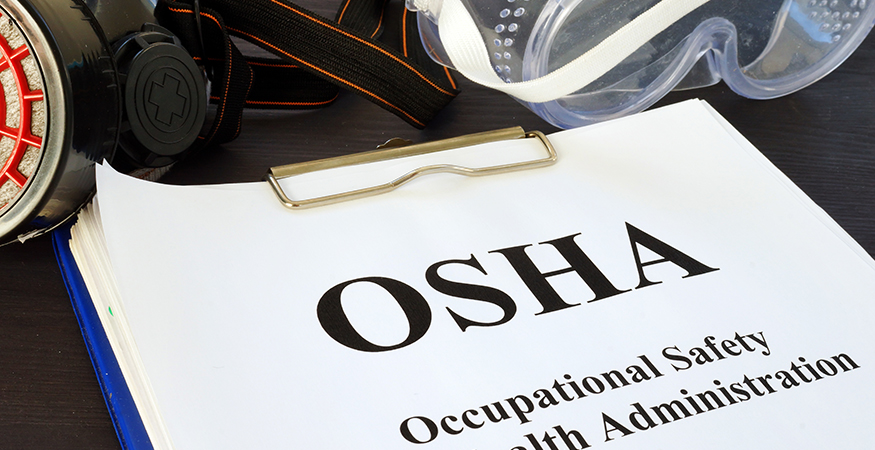It’s been the Wild West when it comes to COVID-19 workplace safety so far. But enforcement hasn’t been non-existent. Although the U.S. Department of Labor’s (DOL) Occupational Safety and Health Administration (OSHA) hasn’t issued COVID-19-specific standards, SHRM reports there has been several COVID-19-related OSHA citations based on existing standards, such as those for respiratory protection, reporting, and recordkeeping. In fact, by early December, OSHA had doled out $3.5 million in proposed penalties for violations relating to the coronavirus.
The agency has periodically offered guidance for workplace safety as it relates to COVID-19 here. In November, OSHA released guidance and an accompanying one-pager to help employers understand which standards have been most frequently cited during coronavirus-related inspections. They include violations involving:
- Facepiece respirators. Some failed to conduct medical evaluations and fit testing appropriately. Others failed to establish, implement, or update their respiratory programs, including failing to designate a qualified program administrator to oversee the program and conduct evaluations. Other failures include a lack of appropriate training and information for workers using respirators, not providing NIOSH-certified respirators or not having enough on hand for each employee, and failing to store respirators properly.
- Recording and reporting illnesses. COVID-19-related violations have been cited when employers have failed to report fatalities and when employers failed to keep records of fatalities and illnesses considered “work-related.”
- Personal protection equipment (PPE). Violations in the healthcare sector involved the use of medical facemasks, face shields, and gowns. Most violations are related to a failure to provide the right PPE to the appropriate people and ensuring the PPE fits each employee.
- General duty. According to OSHA, COVID-19-related violations occurred when “the employer did not furnish a place of employment that was free from recognized hazards that are causing or are likely to cause death or serious physical harm to employees. Under the general duty clause, employers must protect employees from COVID-19 hazards at the workplace by, for example, installing plastic barriers or ensuring social distancing.”
A new year and the rollout of vaccines aren’t expected to be the end of OSHA citations related to COVID-19 enforcement. To the contrary: We have a new federal sheriff in town, after all.
“Over the past nine months, President-elect Biden has repeatedly advocated for the creation and enforcement of an ‘Emergency Temporary Standard’ regarding COVID-19,” points out Paychex in its annual top 10 roundup of regulations to watch. The company adds that while current OSHA language on COVID-19 violations is not specific and enforcement has varied considerably across the country, four states (California, Michigan, Oregon, and Virginia) have already implemented emergency standards. “And a new national standard will likely adopt similar requirements for employers such as the development of an exposure control plan, stricter implementation controls, maintaining of records, and the effective training of employees. Once a national emergency standard is in place, greater enforcement and accountability can be expected.”
SHRM speculates on what that national standard could include, namely:
- Protective equipment.
- Administrative controls like distancing, circulation of employees in limited numbers and requiring work from home when feasible.
- Sanitation and housekeeping.
- Employee training.
“The emergency regulations might also mandate the use of face coverings, although that is more of an open question,” John Ho, an attorney with Cozen O’Connor in New York City, told SHRM.
Paycheck adds that as the COVID-19 vaccine becomes more widely available, considerations on state requirements, including whether employers can mandate that employees get vaccinated, will also come into play.
“To prepare, businesses should ensure their safety policies and procedures are compliant with the current state, local, and CDC guidelines,” they advise. Talk to your legal counsel and be sure that your trusted staffing partner is aware of the latest regulations and procedures. They may be able to help with training and compliance as it evolves, too.
FIND GREAT TALENT NOW
The HT Group fills roles in Temporary Staffing, Executive Search, Technical Recruiting, and Retained Search.
And be sure to connect with us on LinkedIn, Facebook and Twitter for up-to-date news and tips and let us know what’s on your mind.




